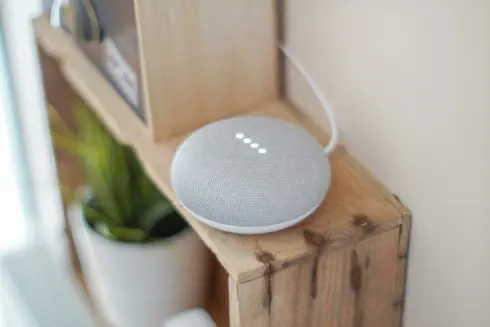


Google has announced the availability of a public developer beta for Android for its Home APIs, which enable developers to create experiences for Google Home devices, such as smart speakers, thermostats, lights, and plugs.
The Home APIs were first announced last year at Google I/O, with the goal of opening up access to the ecosystem to any developer, not just device manufacturers. “Our homes have gotten more helpful with connected products, such as a smart door lock or Nest thermostat. Despite this momentum, it’s still too hard to develop for the home,” Matt Van Der Staay, senior engineering director for Google Home, wrote in a blog post at the time.
The Home APIs consist of: Device and Structures APIs, Commissioning API, and the Automation API. The Device and Structures APIs provide access to over 600 million devices connected to Google Home and an interface for managing and controlling those devices. The Commissioning API simplifies device set up by enabling Fast Pair on Android and allowing Matter devices to be commissioned directly from an app. The Automation API provides tools that allow users to create and manage their home automations within apps.
The Android public developer beta is available now, and an iOS developer beta will be available in a few months as well. During this beta period, developers will be able to test their apps on up to 100 users. Google is anticipating that the Home APIs will be generally available by the end of 2025.
According to Google, Eve, Nanolead, LG, ADT, and Tuya Smart are partners who participated in the early access program and developed new apps and features using the Home API. Additional partners, including Cync, GE Appliances, Yale, and Aqara, will be releasing features in the next few months.
Additionally, the company announced additional investments into interoperability, such as expanding support for Matter, an industry standard for smart home devices, across the ecosystem. Other recent improvements include accepting Connectivity Standards Alliance Interop Lab test results to certify software, partnering with MediaTek on a new chip that makes Thread (another smart home standard) more universal, and investing in Matter by increasing development resources to improve certification automation, interoperability scripting, and SDK bug fixes and maintenance.
“We’re incredibly excited about the future of the smart home, and we believe these investments will pave the way for a new era of innovation and interoperability. By empowering developers and fostering a robust ecosystem, we’re making the dream of a truly connected and intuitive smart home a reality,” Van Der Staay wrote in a blog post.